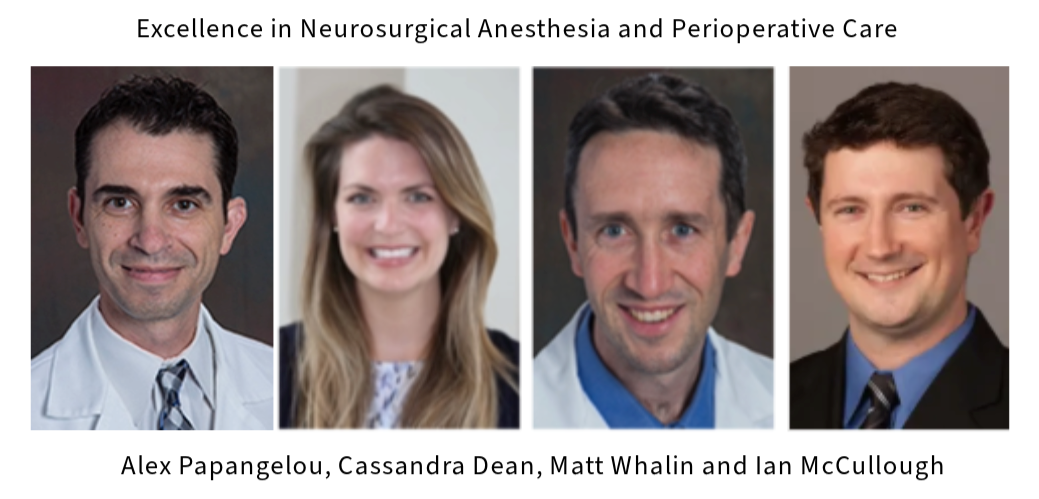Emory University is home to one of the nation’s leading neurosurgery programs, which is complemented by its Neuroanesthesiology section within the Department of Anesthesiology. This section is known for delivering exceptional anesthetic care for complex neurosurgical procedures, including awake craniotomies, skull base surgeries, aneurysm clippings, neurointerventional techniques, and advanced treatments for trigeminal neuralgia. Under the direction of Dr. Alexander Papangelou, the expert faculty actively contributes to national committees such as the Society for Neuroscience in Anesthesiology and Critical Care (SNACC) and the American Society of Anesthesiologists (ASA). They are recognized for their expertise in intraoperative EEG, stroke management, and post-craniotomy pain. Dr. Matt Whalin was recently featured on the ASA’s Central Line podcast to discuss stroke thrombectomy. Drs. Papangelou and Dean have led EEG workshops at both the ASA and SNACC, highlighting the department's commitment to education and clinical excellence. A recent accolade for the department includes the Editor’s Designation Choice Article in the Journal of Neurosurgical Anesthesiology for the manuscript “Opioid-Free Anesthesia for Craniotomy, A Retrospective Cohort Study” by Drs. McCullough, Dean, and Papangelou, with statistical support from David Boorman.

Beyond clinical care, Emory’s Department of Anesthesiology is at the forefront of innovative research in pain mechanisms and treatment approaches. Dr. Daniel Harper, Assistant Professor of Anesthesiology, was awarded funding from the NIH's National Institute of Dental & Craniofacial Research for his study on nociplastic mechanisms in temporomandibular disorders, aiming to distinguish between sensory input and pain perception in these conditions. Additionally, Dr. Harper received the prestigious NIH Director's New Innovator Award through the HEAL Initiative, securing a $2.3 million grant to develop novel methods for measuring pain in patients with fibromyalgia, potentially revolutionizing the understanding of individual pain experiences. The department’s Vice Chair of Research, Dr. Anna Woodbury, also received notification of intent to fund her VA Merit I01 study on auricular neuromodulation for veterans with fibromyalgia. This randomized, sham-controlled study explores innovative, non-invasive neuromodulation techniques for managing chronic pain in the veteran population, offering new avenues for symptom relief and improved quality of life.

Through these initiatives, Emory’s Department of Anesthesiology is advancing the pain field by exploring novel therapeutic targets, developing personalized treatment approaches, and enhancing our understanding of pain processing. By leading the charge in both clinical care and research, the department is poised to make significant contributions to the improvement of chronic pain.



